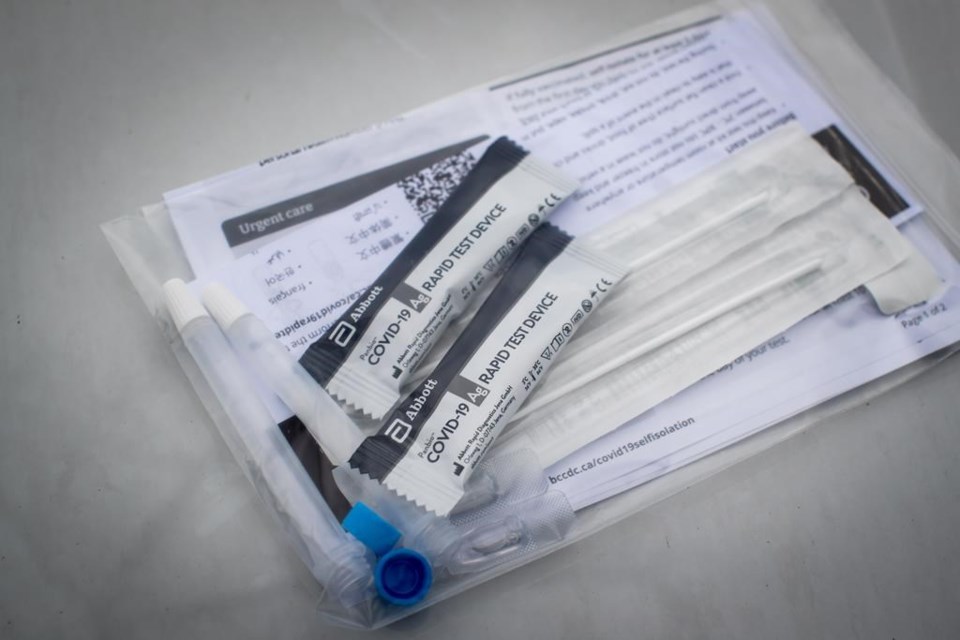Ontario has no immediate plans to end its mask mandate and COVID-19 vaccine certificate system, the province's health minister said Wednesday as she announced details of a plan to distribute free rapid tests at grocery stores and pharmacies.
Christine Elliott said Ontario won't be following the lead of other provinces like Alberta and Saskatchewan, which started lifting vaccine passport rules this week and plan to end masking requirements in the near future.
Elliott said Ontario intends to keep those measures for while longer, though she didn't say exactly when they would lift.
"We have no plans currently to drop the passport vaccination situation or masking. We believe that masking is going to be important for some time to come," Elliott said at a news conference in Kitchener, Ont., adding that the province is following advice from the chief medical officer and other expert advisers.
"We always said that we were going to take a very cautious, phased, prudent approach to opening up and that's the path that we're going to follow."
Ontario started gradually lifting restrictions on businesses, social gatherings and other settings late last month, and plans to further roll back restrictions at three-week intervals.
Elliott indicated Wednesday that the province is sticking to that timeline, noting that the province wants to remove restrictions "as soon as we can," based on scientific advice.
Her remarks came at an announcement detailing the province's plans to expand access to rapid COVID-19 test kits, more than a month after the province sharply restricted access to gold-standard PCR tests due to the fast-spreading Omicron variant.
Most people have been unable to access free rapid tests, but the province said it has now procured more supply and can scale up availability.
Free rapid test kits will be available at grocery stores, pharmacies and other settings starting Wednesday, with information about locations to be posted online.
Up to 5.5 million tests will be made available per week during the program, which the province said will run for at least eight weeks.
Individuals can pick the tests up in-person or order online, depending on the retailer. There will be a general limit of one box of five tests per household per visit but officials said some consideration will be made for people living in larger households.
There are more than 2,300 sites participating in the program, including in the north and in some remote First Nations communities including Attawapiskat, Bearskin Lake and Pikangikum.
Officials said most of the sites were expected to start offering kits on Wednesday, but about half of the 21 sites in the northwest may take a bit longer to get up and running.
Seventeen communities identified as high priority based on high historical rates of COVID-19 and other factors will have more focused, community-level distribution strategies, the province said. Those include Brampton, Kenora, Thunder Bay, Windsor, Fort Frances, Vaughan, Kirkland Lake, and parts of Mississauga, Toronto and Ottawa, among others.
Public Health Ontario has said official daily case counts don't reflect the true number of COVID-19 infections now that the province has restricted access to PCR tests.
Elliott said the province doesn't plan to track results from the rapid tests being handed out in greater numbers, but is looking at other indicators such as hospitalizations, intensive care admissions and wastewater surveillance to monitor the spread of COVID-19.
The wider availability of rapid tests is intended to give people "another layer of protection" as the province reopens, Elliott said, helping people rule out infections before seeing immunocompromised family members and friends, for example.
"(It's) not just to go out and get a test because you want to go to a party,' she said. "This is intended to be used to protect vulnerable people in our community."
This report by The Canadian Press was first published Feb. 9, 2022.
Holly McKenzie-Sutter, The Canadian Press



